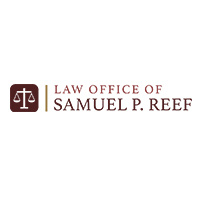South Dartmouth DUI-DWI Lawyer, Massachusetts
Sponsored Law Firm
-
 x
x

Click For More Info:
-
Adam P. Beck, M.D., Esq.
25 Marston St Suite 303 Lawrence, MA 01841» view mapAccident & Injury Law Legal Expertise You Can Rely On
By working with lawyers who are also doctors, clients can benefit from advocates who have a deeper understanding of their physical injuries, medical needs, and prognoses.
800-383-8491
Michael P. Carroll
✓ VERIFIEDCriminal, Felony, DUI-DWI, Misdemeanor
Both my life experiences and professional experiences contribute to my ability to be an effective and compasionate advocate. Prior to the practice of ... (more)
Samuel P. Reef
✓ VERIFIEDCar Accident, Bankruptcy, Divorce, DUI-DWI
Samuel Reef is a practicing lawyer in the state of Massachusetts. He received his J.D. from Suffolk University Law School in 1994. He currently works ... (more)
Paul Michael Sahady
Complex Litigation, Federal Trial Practice, DUI-DWI, Criminal
Status: In Good Standing
FREE CONSULTATION
CONTACTFREE CONSULTATION
CONTACTMichael DelSignore
Criminal, DUI-DWI, Felony, Misdemeanor, White Collar Crime
Status: In Good Standing
Susan Frances Damiano
Criminal, DUI-DWI, Divorce & Family Law
Status: In Good Standing Licensed: 28 Years
James M. Caramanica
Accident & Injury, Criminal, Car Accident, Wrongful Death, DUI-DWI
Status: In Good Standing Licensed: 30 Years
FREE CONSULTATION
CONTACTMark D. Petti
Litigation, Trusts, DUI-DWI, Accident & Injury
Status: In Good Standing Licensed: 26 Years
 Adam Beck Lawrence, MA
Adam Beck Lawrence, MA AboutAdam P. Beck, M.D., Esq.
AboutAdam P. Beck, M.D., Esq. Practice AreasExpertise
Practice AreasExpertise


